Search
Search Results
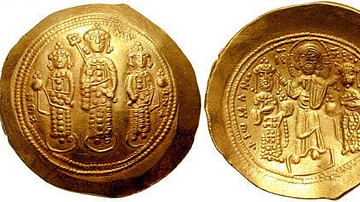
Definition
Romanos IV Diogenes
Romanos IV Diogenes ruled the Byzantine Empire from 1068 to 1071 CE. He was a military emperor, and his policies and campaigns served to shore up Byzantine defenses against the Seljuk Turks. However, in the aftermath of the Byzantine defeat...

Article
Plato: The Name and The Poet
Plato (l. c. 424/423 to 348/347 BCE), the Greek philosopher whose works have significantly shaped Western thought and religion, is said to have initially been a poet and playwright and, even if the primary source of this claim (the often...

Definition
Archelaus (Philosopher)
Archelaus of Athens (l. c. 5th century BCE) was a Pre-Socratic philosopher in ancient Greece who claimed the first cause of existence was the opposition of cold and heat which caused the separation of the universal essence to produce a plurality...
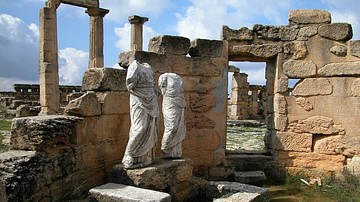
Definition
Cyrenaics
The Cyrenaics were a philosophical school of thought founded c. 4th century BCE by Aristippus of Cyrene (l. c. 435-356 BCE) who taught that sensual pleasure was the highest good and only worthwhile pursuit in life. Known as the first hedonistic...
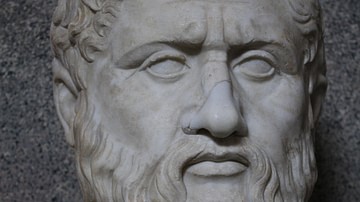
Definition
Plato
Plato (l. 424/423 to 348/347 BCE) is the pre-eminent Greek philosopher, known for his Dialogues and for founding his Academy in Athens, traditionally considered the first university in the Western world. Plato was a student of Socrates and...
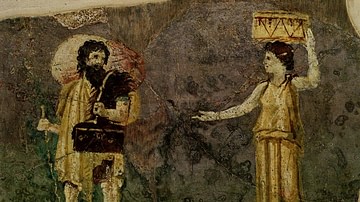
Article
Hipparchia the Cynic: Devoted Wife, Mother, & Outspoken Greek Philosopher
Cynic philosopher, wife of Crates of Thebes (l. c. 360 – 280 BCE), and mother of his children, Hipparchia of Maroneia (l. c. 350 – 280 BCE) defied social norms in order to live her beliefs. She is all the more impressive in that she taught...
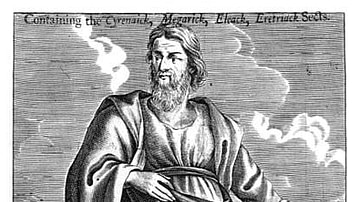
Definition
Aristippus of Cyrene
Aristippus of Cyrene (l. c. 435-356 BCE) was a hedonistic Greek philosopher who was one of Socrates' students and founder of the Cyrenaic School of philosophy which taught that pleasure and the pursuit of pleasure was the highest good and...
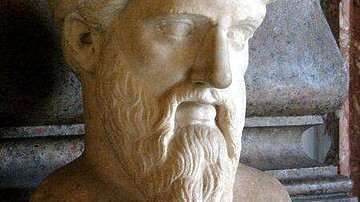
Definition
Pythagoras
Pythagoras (l.c. 571 to c. 497 BCE) was a Greek philosopher whose teachings emphasized the immortality and transmigration of the soul (reincarnation), virtuous, humane behavior toward all living things, and the concept of "number" as truth...
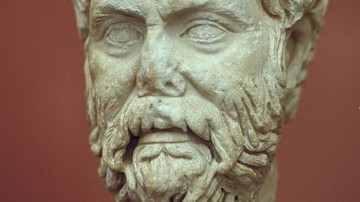
Definition
Pyrrho
Pyrrho of Elis (l. c. 360 to c. 270 BCE) was a Greek skeptic philosopher credited with founding the school of Pyrrhonism which taught that one must resist making judgments or stating conclusions because sense perception did not correlate...

Definition
Periander
Periander was the second tyrant of Corinth (d. c. 587 BCE); Diogenes Laertius only mentions that he was eighty when he died, meaning that he was probably born c. 667 BCE. His father Cypselus (r. 657-627 BCE), from whom the short-lived Cypselid...